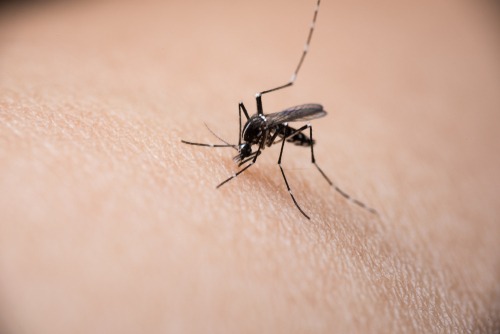
The National Institutes of Health (NIH) is espousing the benefits of an AEG 12 mosquito protein study authorities said could help develop treatments to combat life-threatening viruses.
Researchers at the NIH’s National Institute of Environmental Health Sciences (NIEHS) used X-ray crystallography to solve the structure of AEG12, determining it strongly inhibits the family of viruses causing yellow fever, dengue, West Nile and Zika and weakly inhibits coronaviruses.
The researchers also learned AEG12 works by destabilizing the viral envelope. Although the protein does not affect viruses that do not have an envelope, such as those that cause pink eye and bladder infections, the findings could result in treatments designed to combat viruses impacting millions globally.
“It is as if AEG12 is hungry for the lipids that are in the virus membrane, so it gets rid of some of the lipids it has and exchanges them for the ones it really prefers,” Geoffrey Mueller, the study’s senior author and head of the NIEHS Nuclear Magnetic Resonance Group, said. “The protein has high affinity for viral lipids and steals them from the virus.”
According to Mueller, the AEG12 protein has great killing power over some viruses. While researchers demonstrated AEG12 was most effective against flaviviruses, it is possible AEG12 could be effective against SARS-CoV-2, the coronavirus that causes COVID-19.
However, Mueller acknowledged it would take years of bioengineering to make AEG12 a viable therapy for COVID-19.




